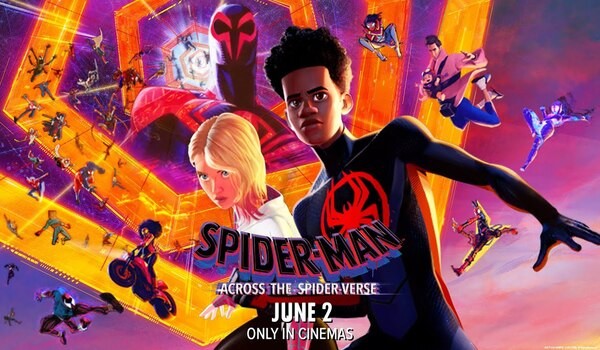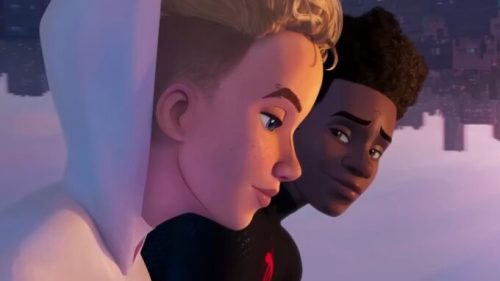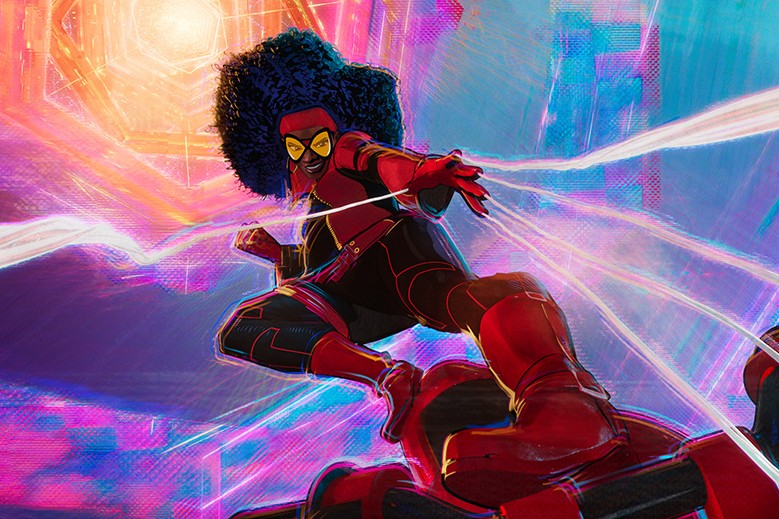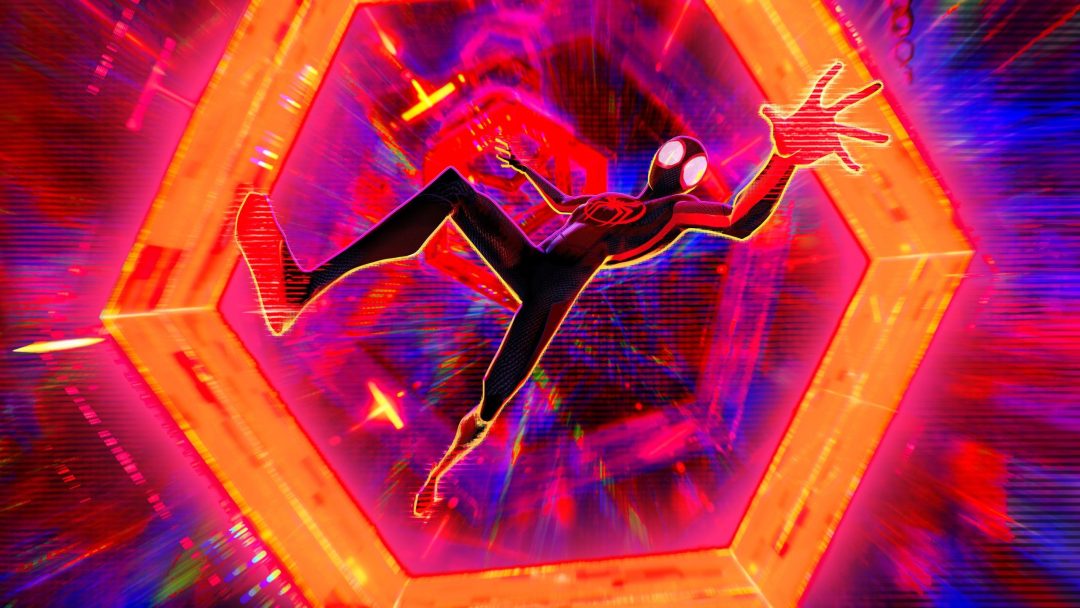Man alive, we love it when an Outposter sends in a contribution. It makes our day here at Last Movie Outpost. It even makes the Shawns happy. You should see their little, smiling faces. Bless them! Today’s Outposter contribution comes from Mr. Horta. He’s been to see Spider-Man: Across The Spider-Verse, which passed the half-billion mark this weekend. So it’s a huge hit. A summer success story. But is it worth the hype? Here’s one Outposter’s take. Over to Mr Horta:
Spider-Man: Across The Spider-Verse

In Summer 2023, I’ve seen four movies on the big screen: The Terminator (1984), Vertigo (1958), Rushmore (1998), and Spider-Man: Across the Spider-Verse (2023). Since Hollywood can’t be trusted to give us another 1982, 1984, or 1987, we have to create our own ideal summers. By that logic, so far this summer kicks ass! The worst movie on that list is Spider-Man: Across the Spider-Verse, but it’s not all bad. I’ll try to explain. Here are some potentially relevant details:
Across the Spider-Verse is a cliffhanger, it ends with a sudden “To Be Continued” that I wasn’t expecting. This suddenly makes me have a title idea for Stallone’s Cliffhanger sequel: Cliffhanger: Suspension of Disbelief: Origins. But I digress…
I don’t read comics. Just never got into them; cool if you do or did. If that has you screaming “Then Spider-Verse isn’t for you!” my spittle-flecked, red-faced reply is simply “It was a Tuesday!”

Not a big superhero fan either – I’ll go all-in on the first two Superman movies and Blade. Maybe Nolan’s Batman movies and Man of Steel if I’m just back from the dentist.
I did love 2018’s Enter the Spiderverse. For a non-comic reader, it was a revelation. Animation is ideal for capturing the fast fluidity of web-swinging. Miles Morales was an appealingly awkward hero. Divorced from the confines of live action, Kingpin was an appropriately monstrous and surreal villain. The world of Spider-Man finally seemed to expand and get more intimate at the same time. If one person encountered a radioactive spider, why not more? Finally, a Spider-Man I could get into. I do still wonder about James Cameron’s lost version.
Five years later, we’re back. The past, plot-wise, is closer than ever. The animation in Across the Spider-Verse continues to be beautiful, distinctive, and textural, but I keep waiting for someone to bring an early Spielberg quality to the camerawork. Across the Spider-Verse has a visual language that leans into comic book trappings and it works well, with call-out boxes and covers on display. Recent trends compel the movie to give us live-action scenes and glimpses. Legos. I went with it.
Positives
The story: Miles Morales is Spider-Man in Brooklyn, in a life that seems to attract curiously little interest from the FBI (gotta like the kid and I suppose we do). Gwen Stacy, would-be girlfriend, is a crime-fighting Spider-Man of her own in a different dimension, wanted for murder by her dad, a cop. If only the movie stopped there and caught its breath, found a way to get Miles and Gwen together, and then leave it at that!

But no. Dimensional soldiers, maniacs, fights among allies. Getting…tired…typing…
Across the Spider-Verse gets its voice acting right. Characters are vulnerable, talk over each other, and sound real enough. Many quippy asides hit my theater’s sold-out Tuesday night audience like a bullseye. A fake-out in a different dimension offers a nice bit of disorientation. If you like this movie before seeing it, if you know you’ll like it no matter what – I envy you! – you’ll have a good time.
But…
The movie is rarely clear about its rules, and thus stakes. Invisibility? Spidey sense? Breaching force-fields? Are heroes really in danger? Action sequences are intense swirling cacophonies of perfectly timed narrow escapes and web-yanking rescues. We’re steered toward fearing for loved ones but Across the Spider-Verse mostly pulls its punches.
The multiverse, so popular lately, reappears. Basically, it’s Escher’s stairs in neon, a utopia future with tube trains and people walking on walls and ceilings (though I guess that happens anyway). A dimension populated by nothing but Spider-Man variants is a tossed-off joke disguised as world-building, and when Miles has to escape from it, how does he know where to go? A running gag with the original Peter Parker bringing his baby daughter into deadly situations gets old fast.
The multiverse is narrative possibility comfort food. A sequence in a Mumbai version of Manhattan leads to a 9/11-like collapse of a skyscraper, our heroes swinging around and rescuing a dozen people, who applaud their rescuers. No, assholes—you’ve just been through the most traumatic disaster you can imagine and scores of people are dead. Your world has changed. You’re not cheering. (Sorry.)
Too Late To Make Changes?
The main villain (Spot) is a featureless being who can open dimensional holes in any space and leap through, which often lands him across the room. A frenetic early sequence in a grocery store introduces him well. But something quieter, more intense, a Miyazaki-esque silent stalking, would’ve made him far creepier and more powerful. A missed opportunity.

The movie could stand to lose 15 minutes of action and replace it with two minutes of awe. Look at these multiverses! Do we have to constantly jump from exposition to fighting? Superhero movies are the most narcissistic of narratives in that they reject any interest in ordinary people unlike, say, Star Wars, Die Hard, Mad Max, and the main characters always seem to know each other already. Spider-Man is no different, everyone exists in some Truman Show world. However, I’ll take what authentic emotion I can get and Across the Spider-Verse, to its credit, offers a little bit of realness.
Finally
Can the Across the Spider-Verse sequel turn its predecessor into half of a masterpiece? I’m open to that. In the meantime, we have a partial chronicle of incredibly popular epilepsy. Too bright and flashy? I guess center yourself, and take a breath.

Check back every day for movie news and reviews at the Last Movie Outpost








